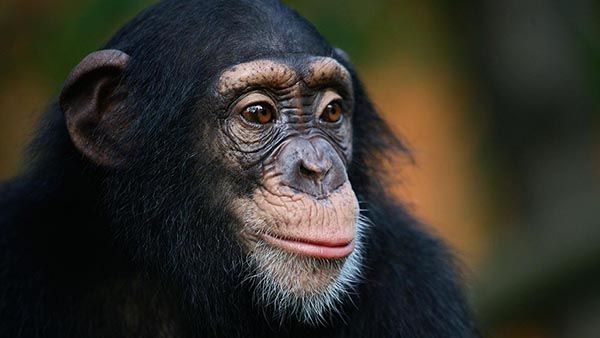
How the Languages We Speak Shape Our Realities
Studies in linguistic diversity suggest that the languages we speak profoundly shape our experiences of the world. How does your language affect you?

There are around 7,000 human languages spoken across the globe, all with unique sounds, vocabularies, and structures. In light of recent research, it's becoming increasingly clear that each language significantly shapes the cognition of its speakers.
In Australian Aboriginal community Pormpuraaw, for instance, the concepts ‘left’ and ‘right’ do not exist — instead, locations are referred to by their relation to the sun. According to cognitive scientist Lera Boroditsky, about a third of the world’s languages discuss space in these kinds of absolute rather than relative terms. Boroditsky remarks:
As a result of this constant linguistic training, speakers of such languages are remarkably good at staying oriented and keeping track of where they are, even in unfamiliar landscapes.
In Russia, meanwhile, the sky is not blue. At least, not in the way we — in English — think it’s blue. Why? Because in the Russian language there is no single word for blue. Rather, there are separate words for light blue (goluboy) and dark blue (siniy), which leads Russian speakers to distinguish two distinct colors.

Moreover, those who speak the Zuñi language have trouble telling orange and yellow apart. Why? Because the Zuñi language doesn’t differentiate between them.
Language impacts not just how we see the world, but our mindset towards it too. Behavioral economist Keith Chen, for instance, is interested in comparing the thinking patterns between speakers of ‘futured’ and ‘futureless’ languages. Futured languages like English distinguish between the past, present, and future; whereas futureless languages like Chinese use the same phrasing to describe the events of yesterday, today, and tomorrow.
Chen finds that speaking a futured or futureless language has significant consequences for — you guessed it — attitudes towards the future. As the TED article summarising his research puts it:
Futureless language speakers are 30% more likely to report having saved in any given year than futured language speakers. This amounts to 25% more savings by retirement, if income is held constant. Chen’s explanation: when we speak about the future as more distinct from the present, it feels more distant — and we’re less motivated to save money now in favor of monetary comfort years down the line.
The languages we speak, it seems, shape everything we do: from how we process experiences to how we behave. The question is why: why does language — something apparently so arbitrary, with its sounds and symbols having no connection to meaning beyond those who can interpret them — have such a profound grip on how we experience the world?
In one concise email each Sunday, I break down a famous idea from philosophy. You get the distillation straight to your inbox:
💭 One short philosophical email each Sunday. Unsubscribe any time.
How Different Organisms Experience Reality
In ethology, the German word umwelt refers to how different organisms experience reality. The umwelt of a bat, for example, is starkly different to that of, say, a chimpanzee. On the one hand, you have a winged nocturnal organism that emits high-pitched screeches and uses the echoes of those screeches, rather than vision, to navigate; on the other you have a primate whose experience of the world is much like our own.

A being’s umwelt is made up of more than its sensory perception, however. It’s also shaped by the concepts it uses to model and interpret the world — concepts learned from culture. Indeed, observations of culture within different species have led to some compelling findings, as discussed in The Conversation:
Killer whale pods and dolphins exhibit different dialects and use tools differently… Capuchin monkeys of Central and South America exhibit 13 variants of social customs, while different orangutan populations vary their calls and the use of tools, nests or other objects.
Examples of chimpanzee culture range from social customs, such as the way they grasp their hands during grooming, to how males sexually display, to the type of tools used for cracking nuts or ant-dipping.
The umwelt of such organisms as whales, dolphins, monkeys, and chimps, therefore, is determined not only by biochemistry: it’s determined by culture. And, if culture shapes the umwelt of animals, it it absolutely fundamental to that of humans. Indeed, our use of advanced language unlocks richer shared concepts, and thus a richer, more all-encompassing culture. As the Jane Goodall Institute notes:
Many believe that chimpanzees have not evolved culture on the scale of human beings due to their lack of advanced language.
The noises we make, the expressions we pull, the symbols we draw — all that we mutually understand about each other feeds a conceptual structure that blankets our realities. That’s why language has such a foundational impact on our cognition: our individual umwelts are contextualized entirely by the cultures to which we belong and the languages with which we communicate.
The cognitive universes we live in
Commenting on the multitude of languages across the globe, Boroditsky remarks: “the beauty of linguistic diversity is that it reveals to us just how ingenious and how flexible the human mind is. Human minds have invented not one cognitive universe, but 7,000.”
That we invent the cognitive universes we occupy is a powerful thought — and an empowering one. Within languages, specialist vocabulary provides deeper, more detailed conceptual clusters that enrich and inform our understanding of particular subjects. An engineer, for instance, describes a bridge differently to a painter; a violinist hears an orchestra differently to a percussionist; a chef explains a meal differently to a food critic.
If each language is a cognitive universe, our specializations and interests are word-galaxies within them — and new ones are there for us to explore.

Language is a strange, wonderful thing. It both contextualizes and enables us to share our experiences. By broadening our linguistic capabilities and vocabularies, we broaden our cognitive universes — and so deepen our understanding of the world, each other, and ourselves. Indeed: if our umwelts are of our own making, how will you shape yours?
Further reading
If you're interested in learning more about the nature of language, we've put together a reading list featuring the best 7 books on the philosophy of language. After reading it, you'll have much clearer understanding as to why the symbols you're currently scanning mean anything at all. Hit the banner below to access the reading list now.

Philosophy of Language
The Top 7 Books to Read
About the Author

Get one mind-opening philosophical idea distilled to your inbox every Sunday (free)

From the Buddha to Nietzsche: join 20,000+ subscribers enjoying a nugget of profundity from the great philosophers every Sunday:
★★★★★ (100+ reviews for Philosophy Break). Unsubscribe any time.

Take Another Break
Each break takes only a few minutes to read, and is crafted to expand your mind and spark your philosophical curiosity.





